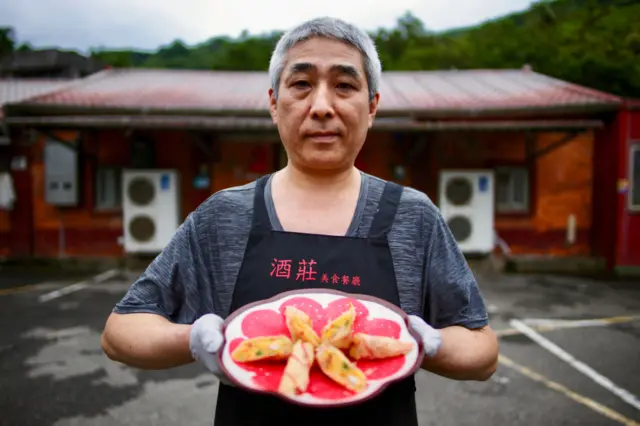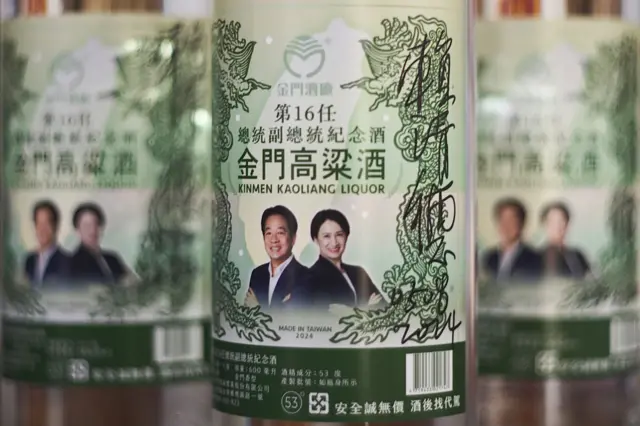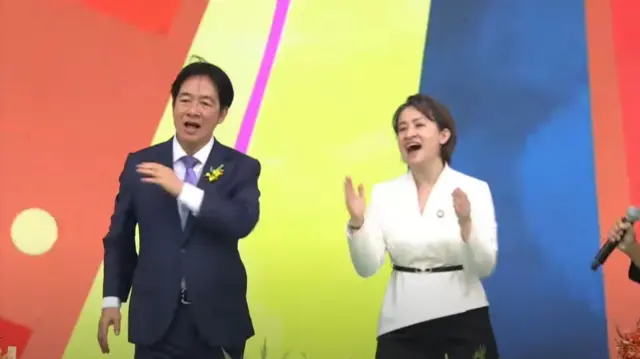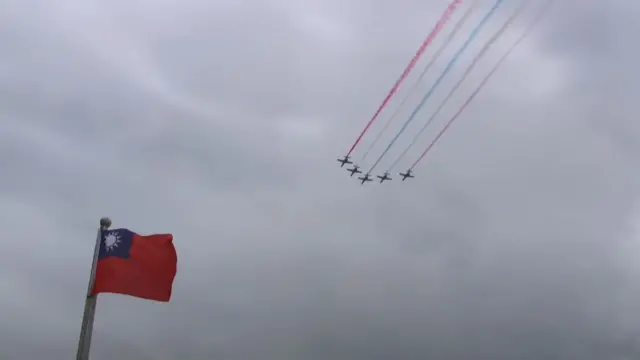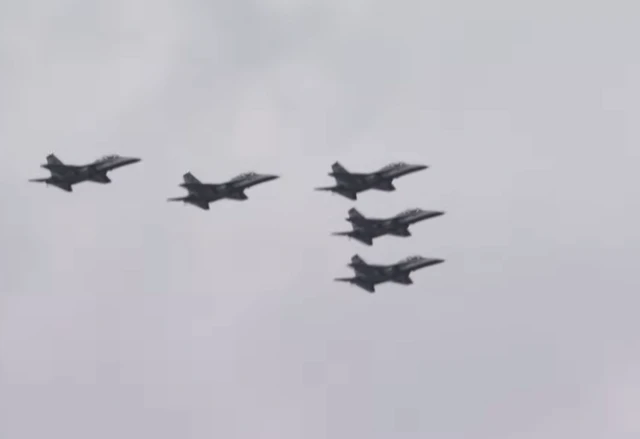Thank you for following our live coveragepublished at 07:01 BST 20 May 2024
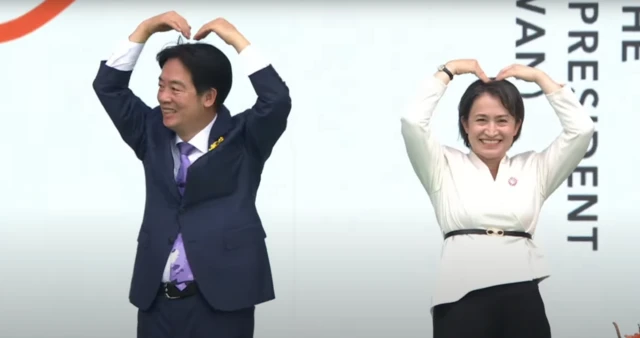 Image source, Taiwan presidential office
Image source, Taiwan presidential officeThank you for following our live coverage on the inauguration of Taiwan's 16th president William Lai.
Before we bring this page to a close, here are the highlights from today:
- President William Lai, Vice President Hsiao Bi-khim and members of the cabinet were sworn in this morning
- In his inaugural presidential speech Lai emphasised Taiwan's democracy and called on its people not to be "swayed by external forces"
- He also called on Beijing to "stop threatening Taiwan politically and militarily"
- While the new leaders were being sworn in, Beijing announced fresh sanctions on US firms it alleges are involved in arms sales to Taiwan
- Meanwhile an extensive, colourful celebration has been going on outside the Presidential Office in Taipei, with singing and dancing celebrating Taiwan's diverse culture
- Lai is taking over at a time of growing aggression from Beijing, while at home, he faces a divided parliament and disgruntled youth who have been hit by housing and unemployment woes
Today's live coverage has been brought to you by Yvette Tan, Kelly Ng, Aparna Alluri, Fan Wang and Nicole Ng.

